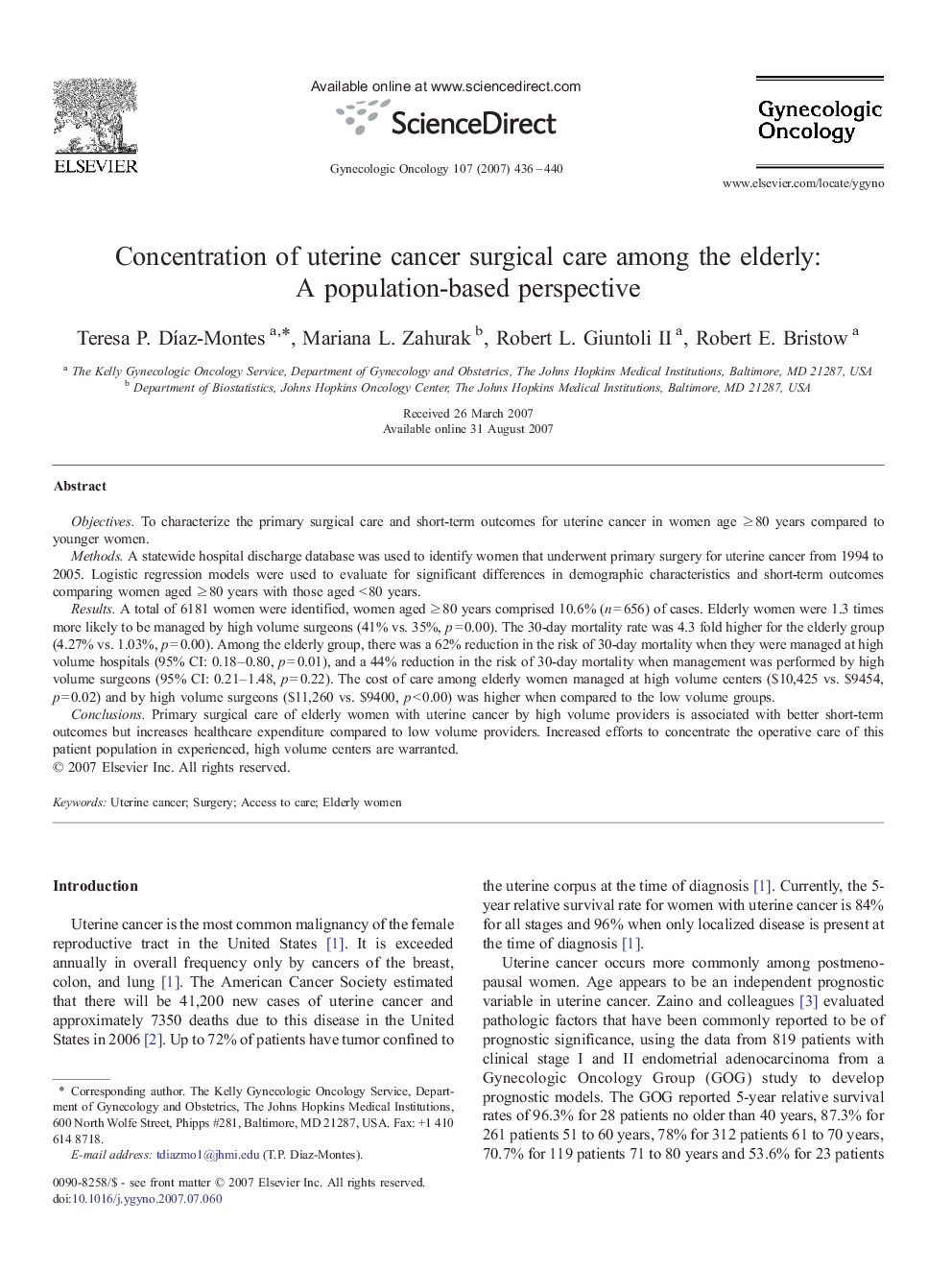| Article ID | Journal | Published Year | Pages | File Type |
|---|---|---|---|---|
| 3944876 | Gynecologic Oncology | 2007 | 5 Pages |
Objectives.To characterize the primary surgical care and short-term outcomes for uterine cancer in women age ≥ 80 years compared to younger women.Methods.A statewide hospital discharge database was used to identify women that underwent primary surgery for uterine cancer from 1994 to 2005. Logistic regression models were used to evaluate for significant differences in demographic characteristics and short-term outcomes comparing women aged ≥ 80 years with those aged < 80 years.Results.A total of 6181 women were identified, women aged ≥ 80 years comprised 10.6% (n = 656) of cases. Elderly women were 1.3 times more likely to be managed by high volume surgeons (41% vs. 35%, p = 0.00). The 30-day mortality rate was 4.3 fold higher for the elderly group (4.27% vs. 1.03%, p = 0.00). Among the elderly group, there was a 62% reduction in the risk of 30-day mortality when they were managed at high volume hospitals (95% CI: 0.18–0.80, p = 0.01), and a 44% reduction in the risk of 30-day mortality when management was performed by high volume surgeons (95% CI: 0.21–1.48, p = 0.22). The cost of care among elderly women managed at high volume centers ($10,425 vs. $9454, p = 0.02) and by high volume surgeons ($11,260 vs. $9400, p < 0.00) was higher when compared to the low volume groups.Conclusions.Primary surgical care of elderly women with uterine cancer by high volume providers is associated with better short-term outcomes but increases healthcare expenditure compared to low volume providers. Increased efforts to concentrate the operative care of this patient population in experienced, high volume centers are warranted.
